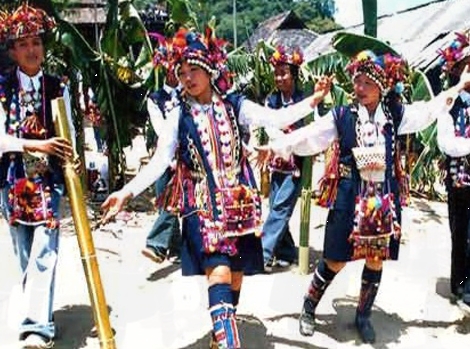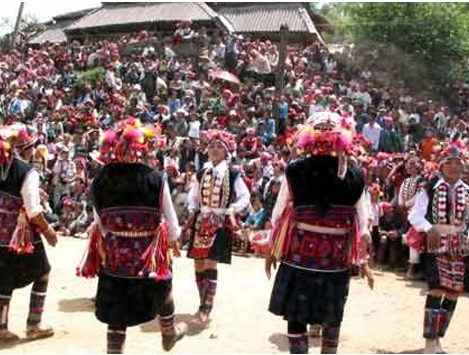
Hani ethnic polyphonic folk song is widespread in several Hani villages centering on Puchun Village in the east part of Azhahe Town in Honghe County, and its popular area is in a naturally enclosed environment with inconvenient transportation and was always an area under administration of the Wazha Magistrate. The single ethnic group and the long history of Tusi regime make extraneous heterogeneous cultures fail to permeate the area of Puchun, so the polyphonic folk song of Hani ethnic group is systematically preserved. This folk song is generally classified to two kinds: one kind has instrumental accompaniment, and another kind is supported by chorus but has no instrumental accompaniment. The content of the singing takes the Mountain Song of Transplant Seedlings as the mainstay and the Oulou Lanlou and Love Song as auxiliary. Compared with other Hani folk songs, the polyphonic folk song has the general and special characters.

The themes of the Hani ethnic polyphonic song include the praise of labor, love and beautiful hilly rural area, etc. Some of its representatives are Wuchu a'ci (Mountain Song of Transplant Seedlings) and Love Song. One kind of its singing mode is accompanied with instrument, and another kind is not accompanied with instrument but supported by chorus. Hani polyphonic folk song can be sung in a great many of occasions such as terraces, mountain forests and stockaded villages. The accompanying instruments are all worked out by the folk singers, and the three-string and small two-stringed Chinese fiddle are only played in Puchun Village. The words of the beginning singing, subject singing and the chorus make up a basic short stanza. In the aspects of stanza structure, mode and tonic row, mode style, and mode combination, Hani polyphonic folk song displays distinctive national and regional characteristics.